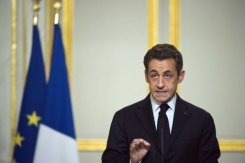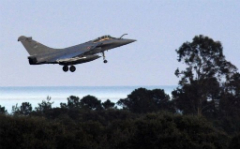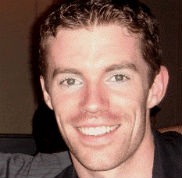Saving President Sarkozy?
In 2007, Nicolas Sarkozy was elected with a comfortable 53% of the vote, six points ahead of his Socialist rival, Ségolène Royale. Marking a sharp move to the right in French politics, Sarkozy’s victory owed as much to Royale’s lacklustre campaign as it did to the strength of his own efforts. In any case, Sarkozy’s victory marked the beginning of what has come to be known as the ‘hyper-presidency’, a whirlwind of activity far removed from the aloofness of Chirac, Mitterrand and Giscard d’Estaing. Sarkozy has been involved in everything, to the point that his Ministers have been stifled and portrayed as puppets in the media. One political commentator, writing in 2008, summed up the situation well: ‘In France today, there are no conventional politics. There is only Sarkozy’.
Paradoxically, this media spectacle has been the source of both Sarkozy’s strength and his weakness. The almost reckless pace at which Sarkozy has moved from project to project has left commentators little time for analysis. The French political scene has become a rapidly shifting environment, characterised by uncertainty. Sarkozy has used this to his benefit, presenting himself as the man of action France needs as it faces a challenging future. And everything about the carefully constructed image of the French president supported this theme: the barrage of policy proposals, the international diplomatic activity, even the highly publicised images of Sarkozy running.
Sarkozy breaks with tradition
 However, the same frenetic pace that has perhaps limited Sarkozy’s exposure to criticism has also proved damaging in other respects. Traditionally, the French
However, the same frenetic pace that has perhaps limited Sarkozy’s exposure to criticism has also proved damaging in other respects. Traditionally, the French
president has maintained a certain distance from the humdrum of daily, domestic political life. This has largely stemmed from the Gaullist idea of the president as an arbitrator, detached from the rivalries of party politics and embodying the interests of the nation. And usually, this has proved extremely useful. In times of crisis on the domestic scene, the president can remain untarnished. Conversely, when times are good, the president can benefit from any public goodwill – think of Chirac in the wake of the 1998 World Cup victory.
Sarkozy, however, has cut this safety line. In involving himself in every aspect of domestic and international politics, Sarkozy has inextricably bound himself to the rollercoaster of the ratings machine on all fronts.
The problem is, there have been more downs than ups for Sarkozy in recent times. While he enjoyed higher popularity ratings than any president since de Gaulle in the early stages of his presidency, the end of the honeymoon was never far away. A series of unpopular policy reforms – the recent increase in the retirement age provoked three weeks of demonstrations and strikes – have pushed Sarkozy’s ratings to the other end of the spectrum. Lately, polls have shown the president to be lagging behind Marine Le Pen of the far right Front National.
Of course, Sarkozy has tried to stem the flow of support by politicising controversial topics such as immigration and security. The identity debate of 2009 and the deportation of Roma gypsies in 2010 are two notable examples. However, the electorate has quickly seen through these superficial attempts to regain some form of momentum. So has Sarkozy run out of options?
Looking to Libya for a lift
 Perhaps not. Many commentators have suggested that the Libyan crisis offers Sarkozy the perfect opportunity to regain the initiative. Diplomatic crises on the international front have helped to rehabilitate the image of many a politician and Sarkozy is no doubt hoping that the UN-sanctioned military action in Libya will be the saving of his political career. The timing couldn’t be better. With the new electoral season about to kick off, it will take a major effort for Sarkozy to reinvigorate his image and recapture the imagination of the electorate.
Perhaps not. Many commentators have suggested that the Libyan crisis offers Sarkozy the perfect opportunity to regain the initiative. Diplomatic crises on the international front have helped to rehabilitate the image of many a politician and Sarkozy is no doubt hoping that the UN-sanctioned military action in Libya will be the saving of his political career. The timing couldn’t be better. With the new electoral season about to kick off, it will take a major effort for Sarkozy to reinvigorate his image and recapture the imagination of the electorate.
And Sarkozy has risen to meet the challenge. The backing for the military strikes on Libya was secured at a summit hosted by President Sarkozy in Paris and, since then, France has taken a leading role in proceedings. The fact that French planes fired the first shots in Libya holds more than a little irony since France signed an arms agreement with Libya in 2007, the first western country to do so since an EU arms embargo was lifted in 2004.
In his quick actions on the international stage, Sarkozy is tapping a powerful force in French national culture. The question of France’s role on the world stage is deeply rooted in the historical and ideological matrices of French republicanism. Since the time of de Gaulle in particular, the French have perceived their country as having a leading role in the hierarchy of nations. It is for this reason that Sarkozy’s actions have been met with cross-party approval. The crisis in Libya fits seamlessly with the laudable ideals immortalised in the triptych of ‘liberty, equality, fraternity’. However, in their haste to embrace the modern day application of these ideals, French politicians seem to have forgotten that only three years ago, Gaddafi pitched his tent in the gardens near the Elysée Palace with President Sarkozy proclaiming that ‘Gaddafi is not perceived as a dictator in the Arab world’.
'Emperor Sarkozy'
The media have rallied to his call as well. Christophe Barbier, editor of L’express, endorsed Sarkozy’s actions and claimed that history would remember the French president as the Western leader who took action against Libya. ‘Emperor Sarkozy’ was one of the headlines on the cover of Le point. By his own account, Bernard-Henri Lévy, the self-styled celebrity philosopher with an ever-present voice in the media, went as far as to facilitate a meeting between President Sarkozy and the Libyan opposition group.
There is no doubt that the crisis in Libya will go some way to repairing Sarkozy’s image among a disillusioned public. The idea of French ‘grandeur’ is still deeply rooted in the popular imagination and a recent poll revealed that 66% of the French public approve of France’s intervention. However, the real question is whether Sarkozy can colour his domestic reputation with any of the credit earned on the international stage.
Sarkozy is desperately trying to keep his head above water and hopes that the Libyan crisis may prove to be his saving moment. But a combination of failed policies, misjudged political strategies and the impact of a global economic crisis have eroded the faith of the French public. In terms of next year’s presidential race, the military action in Libya could be a case of too little, too late.



4 Comments
Post new comment